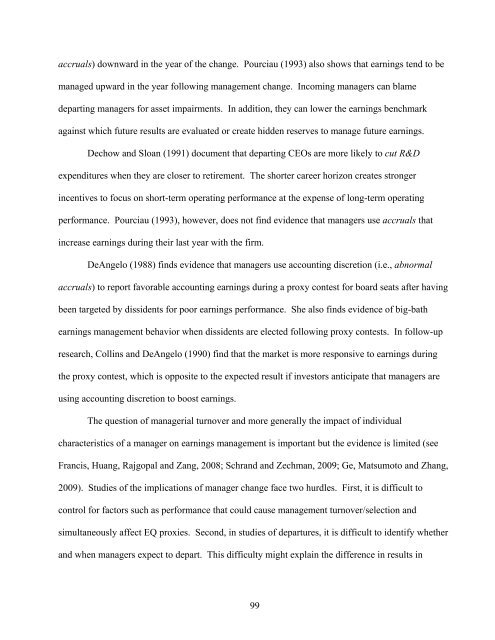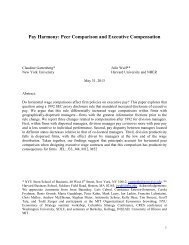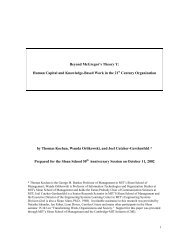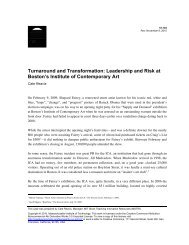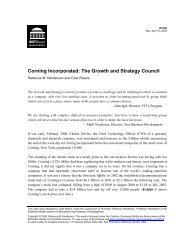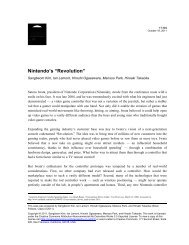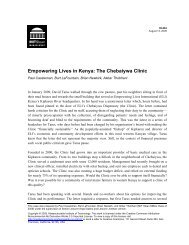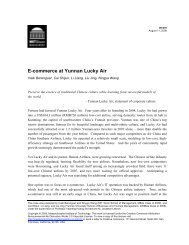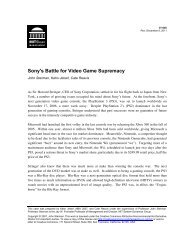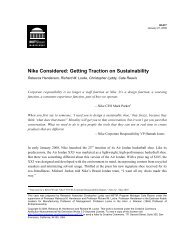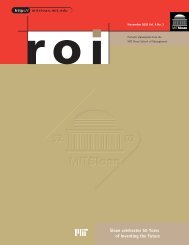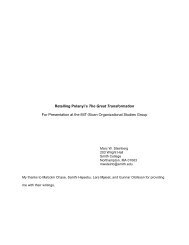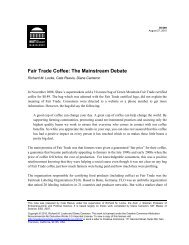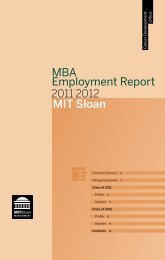Understanding earnings quality - MIT Sloan School of Management
Understanding earnings quality - MIT Sloan School of Management
Understanding earnings quality - MIT Sloan School of Management
You also want an ePaper? Increase the reach of your titles
YUMPU automatically turns print PDFs into web optimized ePapers that Google loves.
accruals) downward in the year <strong>of</strong> the change. Pourciau (1993) also shows that <strong>earnings</strong> tend to be<br />
managed upward in the year following management change. Incoming managers can blame<br />
departing managers for asset impairments. In addition, they can lower the <strong>earnings</strong> benchmark<br />
against which future results are evaluated or create hidden reserves to manage future <strong>earnings</strong>.<br />
Dechow and <strong>Sloan</strong> (1991) document that departing CEOs are more likely to cut R&D<br />
expenditures when they are closer to retirement. The shorter career horizon creates stronger<br />
incentives to focus on short-term operating performance at the expense <strong>of</strong> long-term operating<br />
performance. Pourciau (1993), however, does not find evidence that managers use accruals that<br />
increase <strong>earnings</strong> during their last year with the firm.<br />
DeAngelo (1988) finds evidence that managers use accounting discretion (i.e., abnormal<br />
accruals) to report favorable accounting <strong>earnings</strong> during a proxy contest for board seats after having<br />
been targeted by dissidents for poor <strong>earnings</strong> performance. She also finds evidence <strong>of</strong> big-bath<br />
<strong>earnings</strong> management behavior when dissidents are elected following proxy contests. In follow-up<br />
research, Collins and DeAngelo (1990) find that the market is more responsive to <strong>earnings</strong> during<br />
the proxy contest, which is opposite to the expected result if investors anticipate that managers are<br />
using accounting discretion to boost <strong>earnings</strong>.<br />
The question <strong>of</strong> managerial turnover and more generally the impact <strong>of</strong> individual<br />
characteristics <strong>of</strong> a manager on <strong>earnings</strong> management is important but the evidence is limited (see<br />
Francis, Huang, Rajgopal and Zang, 2008; Schrand and Zechman, 2009; Ge, Matsumoto and Zhang,<br />
2009). Studies <strong>of</strong> the implications <strong>of</strong> manager change face two hurdles. First, it is difficult to<br />
control for factors such as performance that could cause management turnover/selection and<br />
simultaneously affect EQ proxies. Second, in studies <strong>of</strong> departures, it is difficult to identify whether<br />
and when managers expect to depart. This difficulty might explain the difference in results in<br />
99


